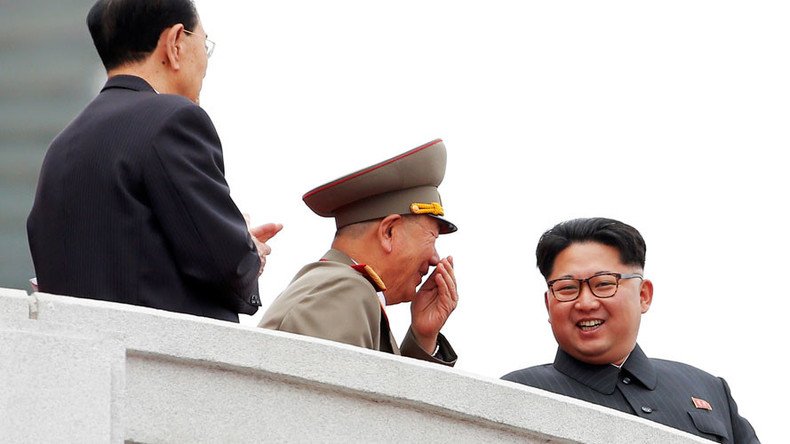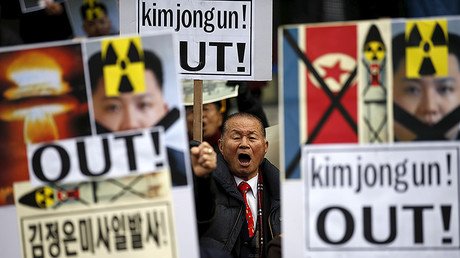‘Vicious plot’: Pyongyang claims CIA planning biochem attack against Kim Jong-un

A terrorist cell supported by the CIA and South Korea’s National Intelligence Service is plotting to kill North Korean leader Kim Jong-un in a “biochemical” attack, Pyongyang has claimed.
The cell has “infiltrated” North Korea but the Ministry of State Security will “ferret out and mercilessly destroy to the last one the terrorists of the US CIA,” the ministry said, as cited by the state’s KCNA news agency.
Pyongyang identified one of the people involved in the “vicious plot” as “Kim,” a timber worker who was allegedly bribed by the CIA while working in Russia in June 2014.
Kim was said to have received over $20,000 from South Korean agents on two occasions and reportedly planned to attack the North Korean leadership during a public event in Pyongyang. The cell allegedly planned to use an unspecified poison.
“[The intelligence agents] told him that assassination by use of biochemical substances including radioactive substance and nano poisonous substance is the best method that does not require access to the target, their lethal results will appear after six or twelve months,” the report said.
“[A North] Korean-style anti-terrorist attack will be commenced from this moment to sweep away the intelligence and plot-breeding organizations of the US imperialists and the puppet clique,” the ministry statement warned.
The report did not provide any evidence of the alleged plot.
An assassination of Kim Jong-un and other senior government officials in Pyongyang is reportedly part of Seoul’s contingency plans for a possible major military confrontation between the two Koreas. The US is said to be lending its expertise to the plan.
READ MORE: Pyongyang angers Seoul with simulated raid on S. Korea’s presidential palace
The North Korean military has trained for a commando raid on the South Korean presidential palace, the Blue House. Such an attack would be the second, after the infamous 1968 siege of the residence.
The accusations from Pyongyang come amid a period of high tension in the region, as the Trump administration appears to be stepping up the pressure in response to the latest missile tests by North Korea.














